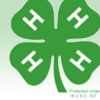 “4-H is a community of young people across America who are learning leadership, citizenship and life skills.”
“4-H is a community of young people across America who are learning leadership, citizenship and life skills.”
This past year 4-H celebrated its centennial landmark across the nation. While apparently still the best kept secret in many states, Brevard County 4-H Agents Kristian Chervenock and Renee’ L. Gore are doing their best to get the word out about 4-H as a Youth Development Organization.
4-H teaches life skills that youth can develop in the course of exploring interesting projects that range from horses to canoeing, citizenship to cultural exchange, rocketry and geo-caching. The list goes on as youth learn to live the 4-H motto “To Make the Best Better.”
So where did 4-H come from?
The federal government established the Extension Service as an outreach program of the federal land grant university system. In Florida, it is cenetered at the University of Florida. The service was established as a three-way partnership between county, state and federal governments. Its purpose is to bring the university’s research and information to the citizens of each state at the local level. At the federal level it is part of the USDA (United States Department of Agriculture). 4-H was established for the youth, and is the only research-based youth development organization sponsored by county government.
The whole purpose of 4-H is to help youth become productive members of society, to acquire life skills, to learn to think about and solve problems as well as develop self confidence. The catch phrase is “4-H is a community of young people across America who are learning leadership, citizenship and life skills.” The youth meet regularly to have business meetings for their clubs and do project work in their areas of interest. They begin their meetings reciting the Pledge of Allegiance and the 4-H Pledge: “I pledge my head to clearer thinking, my heart to greater loyalty, my hands to larger service, and my health to better living for my club, my community, my country and my world.”
Consider what your neighborhood would be like if each week a group of youth got together, recited these pledges and meant them. Imagine an abundance of youth that learn life skills and tools to help them live successful, independent lives, giving back to their community in the form of the service projects that clubs organize each year. That is the heart of teamwork.
Youth come together and build partnerships with their adult club leader as a mentor or advisor for their group. Those between the ages of 5 and 18 can form clubs with an adult to guide them. They learn civic engagement, operating their club meetings with parliamentary procedures deciding on the projects they will undertake to do, embracing the fundraising efforts they need to make it happen, and exploring the service opportunities they see for making a difference
Expand this vision and imagine what our world would be like with 4-H as the training ground for tomorrow’s citizens. All youth are at risk! 4-H helps youth acquire the assets for success to resist the negative influences in the world around them.
 For youth to be successful they need to have a sense of self governance. They need to feel that they have the power to make decisions that are valued and give them some control over their world.
For youth to be successful they need to have a sense of self governance. They need to feel that they have the power to make decisions that are valued and give them some control over their world.
In our 4-H Club structure youth run their club meetings with the assistance of their adult club leader or advisor. Our club leaders are all volunteers with families and jobs in the community. They do this because they care about the youth and want to give back to society in a positive way. That mentor is often the person who makes the biggest difference in the life of a child’s ability to be successful.
Youth need to have a sense of community and a feeling of belonging in their world. Clubs are open to all children regardless of race, creed, gender and religion. Clubs work to have an inclusive environment.
Here’s how to get involved with the 4-H program as a member or as a volunteer. Kristian Chervenock is the agent in Cocoa with responsibility for after-school programming, science, technology and environmental education; his number is 321-633-1702. Renee’ L. Gore is the agent in Palm Bay responsible for animal science programming, daytime community club, and embryology school enrichment. Call her at 321-952-4536.
For more infomation visit the 4H site at brevard.ifas.ufl.edu , call Renee at 321.952.4536 or send an email to jrgore@ifas.ufl.edu
Renee L. Gore is associated with 4-H as a program of the University of Florida, Brevard Extension Service